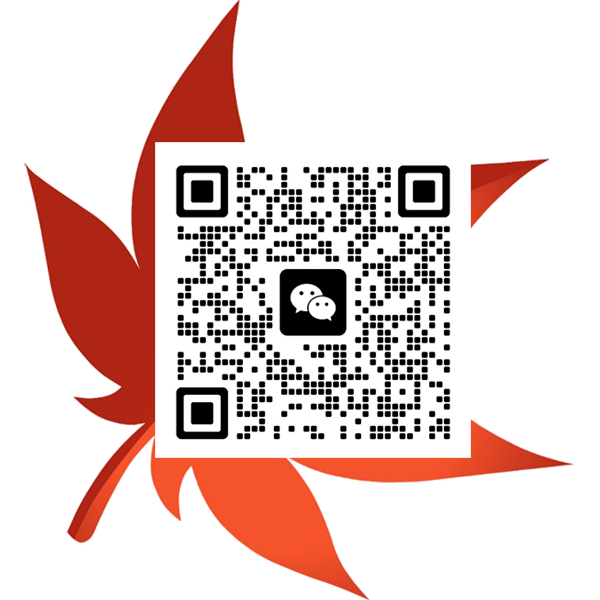中文
51114 – 笔译员、术语学家和口译员
笔译员将书面材料从一种语言翻译成另一种语言。口译员在演讲、会议、会议、辩论和谈话期间,或在法庭或行政法庭上将口头交流从一种语言翻译成另一种语言。术语学家进行研究以逐条列出与某个领域相关的术语,定义它们并找到另一种语言的等价物。手语翻译员在会议、对话、电视节目或其他情况下使用手语翻译口头语言,反之亦然。笔译员、术语学家和口译员受雇于政府、私人翻译和口译机构、内部翻译服务、大型私营公司、国际组织和媒体,或者他们可能是个体经营者。
标题索引
- 美国手语 (ASL) 口译员
- 认证口译员 (C.Int.)
- 认证术语学家 (C.Term.)
- 认证译员 (C.Tr.)
- 社区口译员
- 会议口译员
- 交替传译
- 法庭翻译
- 文化翻译
- 文化或国际适应专家
- 聋人翻译
- 教育翻译
- 弯头解释器
- 陪同翻译
- 国外广播翻译
- 外国新闻翻译
- 口译员
- 聋人口译员
- 法学翻译
- 法律术语专家
- 法律翻译
- 文学翻译家
- 本地化 - 语言学
- 医学术语学家
- 医学翻译
- 口译员
- 魁北克手语 (LSQ) 翻译
- 接力翻译
- 审校-翻译
- 科学翻译
- 手语翻译
- 手语平台翻译器
- 同声传译
- 触觉翻译
- 技术翻译
- 术语学家
- 术语顾问
- 翻译器
- 翻译适配器
- 译审
- 音译器
- 视觉语言解释器
主要职责
该小组履行以下部分或全部职责:
译员和译审
- 将各种书面材料,如信函、报告、法律文件、技术规范和教科书等从一种语言翻译成另一种语言,最大限度地保持原始材料的内容、语境和风格
- 本地化软件和随附的技术文档,使其适应另一种语言和文化
- 修改和更正翻译材料
- 可以培训和监督其他翻译人员。
术语学家
- 识别活动领域中使用的术语
- 对给定主题进行术语研究或响应准备词汇表、术语库、技术文件、词典、词典和资源中心的查询,并添加到术语数据库
- 管理、更新和传播从术语数据库收集的语言信息
- 为笔译员、口译员和技术作家提供咨询服务,准备法律、科学或其他需要专业术语的文件。
口译员
- 大声或使用电子设备将口头交流从一种语言翻译成另一种语言,可以同时(在演讲者讲话时)、连续(在演讲者讲话后)或耳语(在演讲者讲话时对一两个人低声耳语)
- 在法庭或行政法庭提供口译服务
- 可为在加拿大和国外旅行的个人和小团体翻译语言
- 可以在各种情况下为说土著语言或外语的人翻译
- 可以培训其他口译员。
手语翻译
- 同时或连续将手语翻译成口语,反之亦然。
就业要求
- 翻译大学学位,专攻两种语言的翻译、口译或术语学,包括至少两种官方语言中的一种,或相关学科的大学学位,如语言、语言学、语言学和语言迁移课程,以及两年的需要有使用两种语言工作的全职翻译经验,其中至少一种是官方语言,或者具有五年的全职翻译工作经验,使用两种语言工作,其中至少一种是官方语言。
- 手语翻译需要大学培训课程或手语翻译大学证书。
- 笔译员、术语学家和口译员可能需要档案证明或通过加拿大笔译员、术语学家和口译员委员会 (CTTIC) 的考试。
- 手语翻译可能需要 LSQ 或 ASL 证书或认证评估。
- 在国际环境中工作的笔译员或口译员通常需要精通三种语言。
- 可能需要成为省或地区笔译员、口译员和术语学家协会的会员。
- 可能需要成为省级手语翻译协会的会员。
- 一些省份可能会规范职称的使用。
附加信息
- 手语翻译使用法语和魁北克手语 (LSQ) 或英语和美国手语 (ASL)。
- 笔译员、术语学家和口译员专注于两种语言,例如加拿大的官方语言法语和英语。他们也可能专攻另一种语言和一种官方语言。主要专业领域包括行政、文学、科技翻译。口译员可能专注于法庭、议会或会议口译。
排除
- 作者和作家(技术除外)(51111)
- 编辑 ( 51110 )
- 语言学校讲师(41210大专及其他职业讲师)
- 语言学家(在41409 社会科学的其他专业职业中)
- 公用事业定位器(在74204 公用事业维护工人中)
English
51114 – Translators, terminologists and interpreters
Translators translate written material from one language to another. Interpreters translate oral communication from one language to another during speeches, meetings, conferences, debates and conversation, or in court or before administrative tribunals. Terminologists conduct research to itemize terms connected with a certain field, define them and find equivalents in another language. Sign language interpreters use sign language to translate spoken language and vice versa during meetings, conversations, television programs or in other instances. Translators, terminologists and interpreters are employed by government, private translation and interpretation agencies, in-house translation services, large private corporations, international organizations and the media, or they may be self-employed. Sign language interpreters work in schools and courts, and for social service agencies, interpretation services, government services and television stations, or they may be self-employed.
Index of titles
- American Sign Language (ASL) interpreter
- Certified interpreter (C.Int.)
- Certified terminologist (C.Term.)
- Certified translator (C.Tr.)
- Community interpreter
- Conference interpreter
- Consecutive interpreter
- Court interpreter
- Cultural interpreter
- Cultural or international adaptation specialist
- Deaf interpreter
- Educational interpreter
- Elbow interpreter
- Escort interpreter
- Foreign broadcast translator
- Foreign news translator
- Interpreter
- Interpreter for persons who are deaf
- Jurilinguist translator
- Legal terminologist
- Legal translator
- Literary translator
- Localiser - linguistics
- Medical terminologist
- Medical translator
- Oral interpreter
- Quebec Sign Language (LSQ) interpreter
- Relay interpreter
- Reviser - translation
- Scientific translator
- Sign language interpreter
- Sign language platform interpreter
- Simultaneous interpreter
- Tactile interpreter
- Technical translator
- Terminologist
- Terminology advisor
- Translator
- Translator adaptor
- Translator-reviser
- Transliterator
- Visual language interpreter
Main duties
This group performs some or all of the following duties:
Translators and translator-revisers
- Translate a variety of written material such as correspondence, reports, legal documents, technical specifications and textbooks from one language to another, maintaining the content, context and style of the original material to the greatest extent possible
- Localize software and accompanying technical documents to adapt them to another language and culture
- Revise and correct translated material
- May train and supervise other translators.
Terminologists
- Identify the terminology used in a field of activity
- Conduct terminological research on a given subject or in response to inquiries for the preparation of glossaries, terminology banks, technological files, dictionaries, lexicons and resource centres, and add to terminological databases
- Manage, update and circulate linguistic information collected from terminological databases
- Provide consultative services to translators, interpreters and technical writers preparing legal, scientific or other documents that require specialized terminologies.
Interpreters
- Interpret oral communication from one language to another aloud or using electronic equipment, either simultaneously (as the speaker speaks), consecutively (after the speaker speaks) or whispered (speaking in a low whisper to one or two persons as the speaker is talking)
- Provide interpretation services in court or before administrative tribunals
- May interpret language for individuals and small groups travelling in Canada and abroad
- May interpret for persons speaking an Aboriginal or foreign language in a variety of circumstances
- May train other interpreters.
Sign language interpreters
- Translate sign language to a spoken language and vice versa either simultaneously or consecutively.
Employment requirements
- A university degree in translation with a specialization in translation, interpretation or terminology in two languages including at least one of the two official languages or a university degree in a related discipline such as languages, linguistics, philology and courses in linguistic transfer and two years' experience as a full-time translator working in two languages, at least one of which is an official language or five years of experience as a full-time translator working in two languages, at least one of which is an official language, are required.
- Sign language interpreters require a college training program or a university certificate in sign language interpretation.
- Certification on dossier or by examination from the Canadian Translators, Terminologists and Interpreters Council (CTTIC) may be required for translators, terminologists and interpreters.
- Sign language interpreters may require a certificate or certification evaluation in LSQ or ASL.
- Fluency in three languages is usually required for translators or interpreters working in an international context.
- Membership in a provincial or territorial association of translators, interpreters and terminologists may be required.
- Membership in a provincial association of sign language interpreters may be required.
- Use of professional titles may be regulated in some provinces.
Additional information
- Sign language interpreters work in French and Langue des signes québécoise (LSQ) or in English and American Sign Language (ASL).
- Translators, terminologists and interpreters specialize in two languages, such as French and English, the official languages of Canada. They may also specialize in another language and one of the official languages. The main areas of specialization include administrative, literary, scientific and technical translation. Interpreters may specialize in court, parliamentary or conference interpretation.
Exclusions
- Authors and writers (except technical) (51111)
- Editors (51110)
- Language school instructor (in 41210 College and other vocational instructors)
- Linguist (in 41409 Other professional occupations in social science)
- Utility locator (in 74204 Utility maintenance workers )

